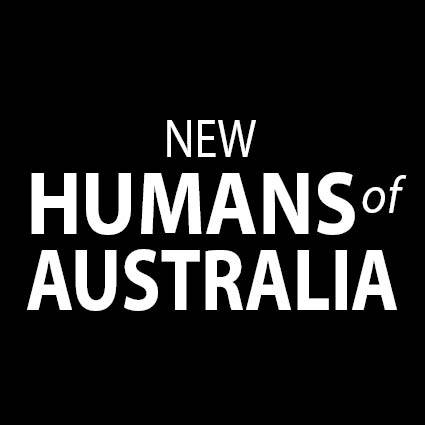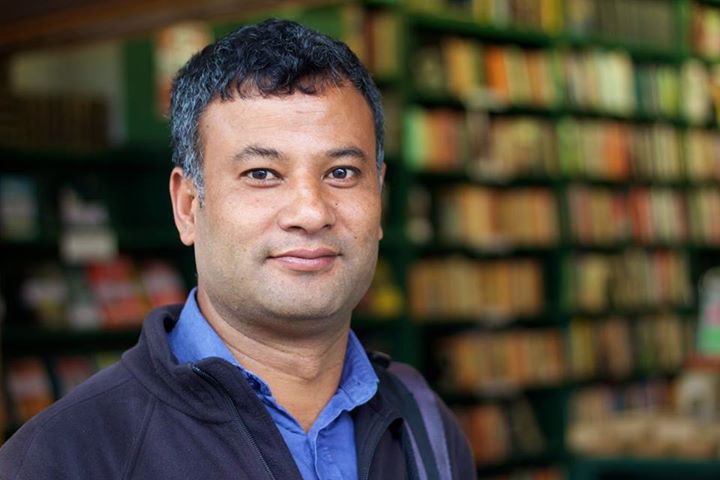My mother always discouraged me from studying. She said, ‘We are not the ruling class, we are working people, why are you studying? They are never going to give you a job even if you are educated.’ She even burnt my books a few times.
She had been married at the age of 9, and of her 11 children, 6 died as babies. Then, when I was 5, my father died. It was a huge burden for her – at that time, she had never even handled money. She had to work 16 hours a day as a weaver, and my sisters had to leave school to work as child labourers, carrying bricks. I worked in my school holidays, but I insisted on finishing school.
When I was growing up, I saw so many children dying because our wells were contaminated by sewage. One day, when I was 17, I met some Dutch people and told them about the problem. They gave us $1000, and that $1000 was enough to buy a 9 km pipe, which enabled us to get water from a clean source in the jungle. Suddenly, people stopped dying! That one project empowered our village so much.
I realised when I was very young that I was gay. I was always thinking, ‘Why am I like this?’ I wanted to die, it was taking all my energy. Then, when I was 18, I saw some gay men in a public toilet in Kathmandu and realised that other people liked me existed! Later, I saw men having sex in the parks. This was the time of the global AIDS epidemic, and I was very scared that if the homosexual community got HIV in Nepal, we would be bashed up. So I decided to do something about it. At first, I would just get a whole bunch of free condoms from the hospital and give them to everybody in the parks, not just homosexual men but the female prostitutes too! Later, I made big metal boxes, put them everywhere, and paid people to fill them up. So people were very aware of HIV very early on in Kathmandu because of that.
Around the same time, I met 2 Australian gay guys and after I showed them around the city, they offered me some money. But I said no, that I had just done it to practice my English. And they were impressed! We stayed in touch, and a year later one of them offered to help me come to Australia to study. He organised everything – my visas, my study and paid for my rent and food and everything. It was amazing.
First, I studied English for a year, followed by a one year tertiary preparation course, before doing a Medical Science degree. But after I finished, I wanted to see the world. Over the next 8 years, I worked my way around 65 countries. When I came back, I decided to study Public Health because I had realised that it was the only thing that really helps poor people. After graduating, I worked in Bangladesh, then in the Katherine with indigenous people. Next, I did a Human Rights course at Sydney Uni, where I conducted research on LGBT violence in Nepal. I was there when the earthquake happened, and because I had so many links with organisations, I was able to help a lot with mobilising medicine, food and housing. Now, I’ve come back to get a job where I can help people with water sanitation in Nepal. I’m applying for the job today.
Living in Australia I feel more human than in Nepal because people don’t discriminate against me as much. I feel very equal to everyone here. My dignity is respected. And I feel so grateful to the person who helped me to come here. I’ve never met anybody so compassionate and knowledgeable.
And I’m very glad I insisted on finishing high school. My sisters looked at me and realised the value of education, and now all my nephews and nieces have been educated, which makes me very proud.
Kedar
Nepal
Arrived 1996
Please help keep the New Humans of Australia project alive, by becoming a patron from as little as $1 a month: www.patreon.com/nicolagray?ty=h (If you experience technical problems, please google ‘nicola gray patreon’)


You are an inspiration; someone who came from so little yet has achieved so much and given back to the community to whole time. You are an amazing person who deserves everything you want. Good luck with the job.
Wow, what an amazing story you have! Thank you for sharing. You have come so far in your life and are helping so many people in a very real and tangible way and I think you’re amazing!
This story is everything. Where’s Hollywood? Seriously, I’m sharing this story in my classroom. Hope to change hearts, minds and lives with it. You know, just a day in the life of a teacher. Thank you for sharing
Well Kedar you are an amazing, inspirational human being… Good on you for insisting on your education and for your mindfulness of what was needed in your local community. You are wonderful…Good luck to you!
Wow Kedar – what an incredible story of insight, courage and belief both as a child and an adult. Thank you for sharing your story. Glad you are in Australia and by sharing your story continue to change people’s lives. Education can change the world. Bless you ????????????
What a remarkable ‘human’ you are , going against the tide and pursuing education early on and then throughout your life. Your persistence has given you success in life and now that same persistence and love is a making a difference in others lives .
Well done to you !!! X
What an extraordinary man you are. Truly inspirational. We should all aspire to live a life such as this. May your future be filled with love happiness and family.
I wish all Australians realised they had the power to change lives through generosity and kindness..rather than just sitting around stressing about what turns up on ACA and other nonsense-TV and garbage media. We have to take care of others. Simple. I am so grateful for that person who helped you; look at the positive ripples that kindness and belief caused! ????
Wow. We are so lucky to have you. As Australians born here, we have everything handed to us for the taking but still people complain that they are hard done by. You’ve had nothing easy. You’ve worked for everything. You are an inspiration.
What a beautiful life. A life well lived. Loved reading your story. I like seeing those who have to those who have less and inspire them to become the one’s who have. It’s a chain really. I think if everyone did something for others to inspire others do the same, everyone will have the chance to live a better life. And we will not need the greedy corporations to help us because we have build a stronger chain. A chain which money can not break.
I love this story, so glad you met those 2 Aussies and so proud they did what they could to get you to Study and now how amazing you are, well done, good luck with the job interview.
Kedar, you are a magnificent human being! Respect also to those who helped you reach your potential.
You are truly remarkable. Getting clean water for an entire village is remarkable, but what is even more remarkable is showing family and friends the benefit of education. This allows the village to continue to find healthier ways to live and other villages to follow your lead. You are an asset to every country and Australia is so lucky to welcome you to our shores.
Every single person in Australia should be made to read this page, Especially kids. Kids these days (including mine) need to be shown just how lucky they are to live in a safe environment where education is free and valued.
These stories are a real eye opener and I wnjoy teafing them. Thank you
Thank you Eliza Rose for link. I signed on as patron!
It is stories like this that keep my partner and I fundraising in Australia and New Zealand to help community development projects in West Bengal
Well done to you for a life of service to others.. however just be grateful you were born male, or you would have been married off at 9 too, or not valued enough to receive education – like your mother & sisters. Womens health and education causes are important in developing well rounded communities. Good to see its changing for your family!
Remarkable person, you are what makes the world go round…compassion, kindness, integrity, hope and drive..my thanks to you !
Wow, I never thought that someone could feel “less human” in different parts of the world. This was such an eye-opening story, thank you!
I have tears in my eyes! Amazing. Donating today ❤️
What an extraordinary story -and what an amazingly fruitful life you have had – respect! And this is why Australia needs to drop their characteristic survival of the fittest ethos and be more compassionate towards the less fortunate In the world. Blessings to that person who gave you the leg up – and how glad they themselves must be that they stuck their neck out and assisted you. That they can take to their deathbed and know that they did good…..
Kedar, you are simply inspirational!! As is the Aussie guy that paid for your visas, study costs, rent, food etc. He saw something special in you and you are paying it forward. Bless your big heartedness and best wishes.
This country is all the better for people like Kedar. What happened to Mother, has her life been transformed too?
You are the type of person I want to see getting public recognition despite the fact that you would be very modest, I am sure.
I love the fact that a simple gifting of $1000 is still gifting…. forever.